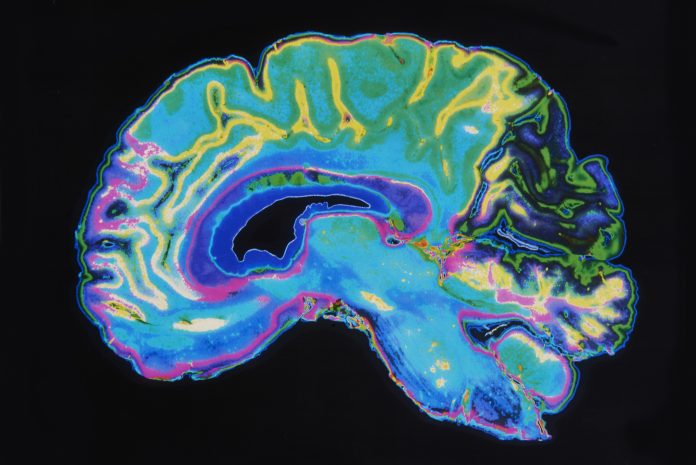Professor Monica Di Luca, Past President of the European Brain Council outlines the past, present and vital future of European brain research
More than one out of two Europeans currently live with a brain disorder, neurological and mental alike.(1) Despite enormous effort from the scientific and clinical community over the last decades, the challenges in the brain space remain tremendous, spurred by this high prevalence of and increasing disease burden.
The current state of the brain
A recently published European Research Inventory and Mapping Report showed brain research activities funded at the European level over the last decades, examining the past and current state of brain research in Europe. The statistics demonstrate that annual fundings in Europe can reach significant levels to support highly competitive research projects – reaching €550 million in 2014-2018(2) – as the challenges posed by brain disorders remain high, continued funding of research consortia is key for a lasting impact on collaboration and innovation in the European and global brain research area. It evidences that continuous support is still needed in all areas of brain research in the EU, particularly to support initiatives that reduce fragmentation and increase collaboration. Attention should be given to the importance of animal models, increasing public patient engagement and encouraging and enabling data sharing.(3)
Tackling the challenges and addressing gaps
To address the importance of brain health and brain research, the European Union has taken some important steps to boost brain research initiatives with partners around the world, including the EU Joint Programme on Neurodegenerative Diseases ( JPND), the Network of European Funding for Neuroscience Research (ERA-NET NEURON), Human Brain Project (HBP) and the European Brain Research Area (EBRA), which brings the aforementioned three together, led by the European Brain Council.
It has become clear to the research community that only through close collaboration and cooperation can any progress be made in understanding the brain, using research funding to its full potential on excellent research and demonstrating the need for prioritisation and increased support at the European and global level – a vital (and currently lacking) requirement. Gaps in existing brain research should be identified and priorities for the future should be set. Efficiency in funding needs improvement – budgets should be allocated in such a way that allows brain researchers to deliver high-quality research. To address this, the involvement of all relevant stakeholders in the brain area is required, spanning beyond researchers, to related clinicians, industry regulators, policymakers and, particularly, people living with brain disorders themselves.
This is not an easy endeavour. Many key stakeholders face challenges or impose barriers. Industry continues to leave neuroscience research at an alarming rate due to slowing success draining budgets; global funding programmes need to be developed to incentivise industry and biotech back to the brain. Regulatory bodies pose many administrative and legislative hurdles that slow down discoveries and breakthroughs in the field. Connections within the community need strengthening:
- Scientists need to be trained on how to approach and talk to industry and investors.
- Engagement between brain researchers and regulators should be facilitated to benefit and streamline breakthroughs.
The development of a clear scientific discovery-to-market pathway will accelerate the regulatory process. Such engagement will also allow the development of new methodologies through which evidence can be collected, validated, and integrated into regulatory and reimbursement processes. This will allow innovations to reach the patients and citizens who need them at a much faster rate.
A common goal and shared agenda for brain research
Through EBRA, advancements have been made in developing a share strategic research and innovation agenda – the Shared European Brain Research Agenda (SEBRA)– currently discussed among key players in the brain space, the with the aim to provide recommendations on future areas for excellent, innovative, and translational research.
“It has become clear to the research community that only through close collaboration and cooperation can any progress be made in understanding the brain, using research funding to its full potential on excellent research and demonstrating the need for prioritisation and increased support at the European and global level – a vital (and currently lacking) requirement.”
The brain research community demonstrates a clear need: the European Commission must come forward with a clear plan to tackle brain health in a collaborative, integrated and forward-looking manner in Europe and to further support Member States and associated countries in their efforts to combat the impact of brain disorders. Additionally, Member States and associated countries would benefit from the implementation and creation of brain research programmes addressing brain health in a systematic and comprehensive manner.
As the Horizon Europe framework programme is fully underway, the momentum can only be accelerated through an ambitious partnership on brain health in Europe to develop a common goal to prioritise and ensure brain research is recognised as essential for maximum impact and benefit of research breakthroughs on society.
Towards a European brain health partnership
With many of the brain-related flagship projects ending in 2023 – including JPND, NEURON and the Human Brain Project – the need for continued prioritisation of European-led, coordinated collaborations is clear. As a previous proposal by France to create such a partnership did not receive sufficient support, the challenge of getting Member States and national funding councils to commit to long-term partnerships remains. Unification in the brain space is now more important than ever and a coordinated partnership is the only answer to avoid fragmentation in the field and move forward together.
A European Brain Health Partnership is now fundamental to improve alignment and synergies across European initiatives to intensify scientific collaborations, identify gaps in knowledge, improve data sharing, facilitate access to infrastructure and move towards a future where citizens and society will benefit most from the breakthroughs in brain research.
References
- Global Burden of Disease study 2019, https://www.healthdata.org/gbd/gbd-2019-resources
- European Research Inventory and Mapping Report, European Brain Research Area (EBRA), https://www.ebra.eu/wp-content/uploads/2022/02/EBRA_MappingReport_2022-1.pdf
- European Research Inventory and Mapping Report, European Brain Research Area (EBRA), https://www.ebra.eu/wp-content/uploads/2022/02/EBRA_MappingReport_2022-1.pdf
“The EBRA project has received funding from the European Union’s Horizon 2020 research and innovation programme under grant agreement No 825348”











